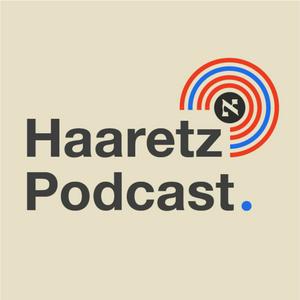Have American Jews pushed Israel toward extremism or moderation?
On a special edition of the Haaretz Podcast – as Israel faces the Jewish High Holidays mired in war and political division, host Allison Kaplan Sommer speaks to Prof. Adam Ferziger about soul-searching and atonement with a focus on the Orthodox Jewish community in Israel and the Diaspora. Ferziger, who is also an ordained rabbi, believes the process of observing Rosh Hashanah and Yom Kippur “is all about humility.” “Rosh Hashanah comes before Yom Kippur, because in order to be able to go before God and do some sort of atonement, I have to first acknowledge my place in the world,” he said. Following October 7 and over the past two years of war, “so many of the players involved, unfortunately, feel that they know all the right answers, and there is a real lack of humility on many sides.” Faith and belief in God, he said, should not “be a cause for saying ‘I am more powerful and better, and I know the truth more than you do.’” In his new book, "Agents of Change: American Jews and the Transformation of Israeli Judaism," the Bar-Ilan University professor chronicles the rise of what he calls “moderate Orthodox Judaism” in Israel, the pioneering immigrant Diaspora Jews behind a more liberal and tolerant religious outlook – even as, politically, their presence in Israel strengthened the right and the settler movement. “Many are right-wing by most standards when it comes to politics, but that does not necessarily go along with their attitude towards Jews who differ from them, or on sexual identity, or the role of women in leadership – and many other subjects.” While it can be “very hard to pull those things apart,” Ferziger sees this dichotomy as an opportunity for “conversation between people in Israel who are moderate in a lot of areas and the broader community in America,” even when there are deep political disagreements. Read more: Israel's Religious Left Finds New Purpose Amid Gaza War What Future Is There for a Young, Leftist, Secular Family in the Israel of 2026? Opinion | What I Wish Rabbis Would Say About Israel, Gaza and the Palestinians in Their High Holy Day SermonsSee omnystudio.com/listener for privacy information.


